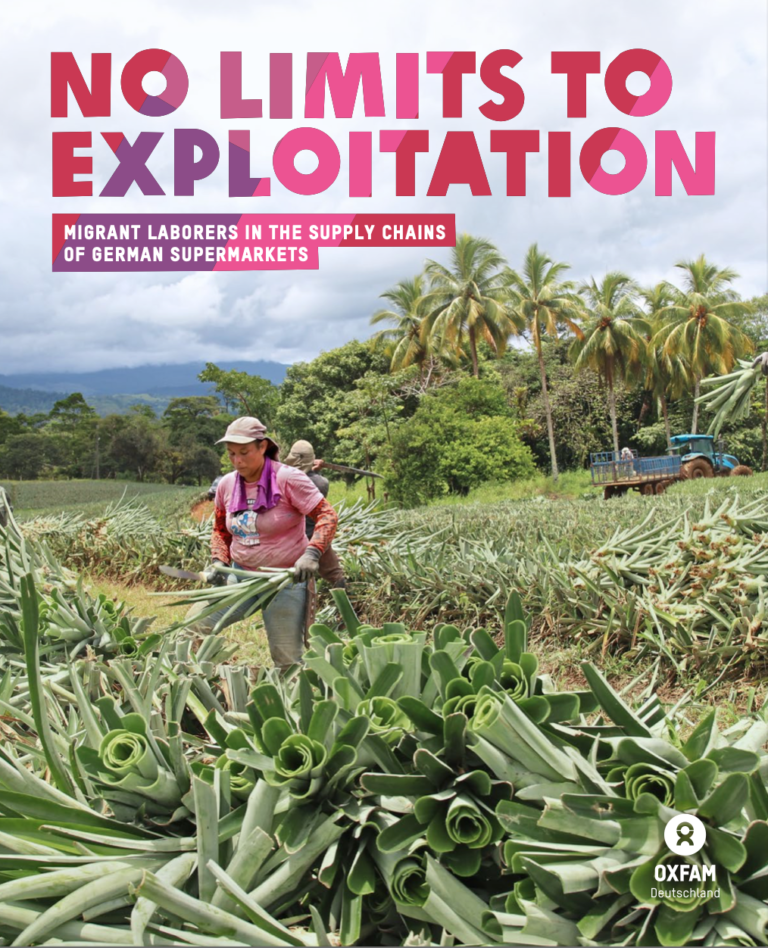Fat profits on the one hand, starvation wages on the other: The inequalities along the supply chains for our food are enormous. Dieter Schwarz, owner of Lidl and Kaufland, earns the annual income of a farmworker on a pineapple plantation in Costa Rica every six seconds. While German supermarkets earned record profits during the pandemic, farmworkers on the plantations supplying produce for the supermarket shelves had to work for wages that barely suffice to feed a family.
Especially precarious is the situation facing migrant workers in agriculture. Without them, the supply chains for numerous foodstuffs would collapse. For a number of products, migrant workers represent half the workforce or more. Many of them leave their homeland to earn a living as seasonal workers. In return, they often must accept exploitative working conditions. For many migrants, these conditions nevertheless amount to the best of several bad options, given the difficult circumstances in their homelands.

